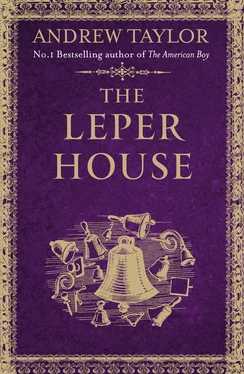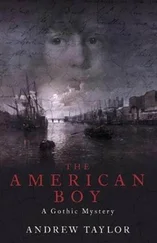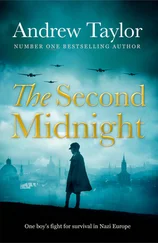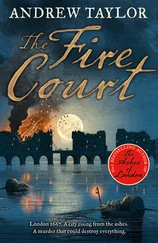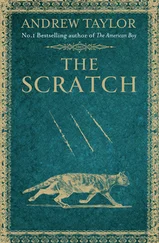It was still raining. The wind had risen and the trees between the chapel and the car park were swaying and rustling. The mourners of the next cremation were already arriving and the car park was crowded. Two or three of us paused, waiting to let a car go by.
‘I wonder who they’ve got to do the sandwiches,’ said a woman at my elbow, one of the pair who had been sitting in the row in front of me. ‘I hope it’s Harrell’s.’
‘Or Thurston’s.’ Her friend lowered her voice. ‘You wouldn’t have guessed, would you?’
‘That it was …?’
‘Of course, they couldn’t be sure, so they said it was an accident. For the family’s sake. You can’t blame them, can you?’
They moved away. I hesitated near the exit road. A queue of cars inched towards the main road. A silver Renault paused a few feet away. I glanced at the driver’s window and saw Alan looking up at me. The girl was beside him in the front, the boy was in the back.
Alan didn’t lower the window. His face was perfectly blank. I raised my hand in a tentative salute. His head turned away. Perhaps I really was invisible. The queue rolled forward.
I went back to my own car, sat behind the wheel and stared at the blurred windscreen. What had I expected? A quiet reconciliation over Mary’s body? A tacit agreement that her death must bring us all together?
I became aware that I had something in my hands. I looked down at my lap. I was still holding the order of service. Quite unconsciously, I had rolled it into a cylinder and squeezed it out of shape.
I unrolled the booklet and smoothed it out on my thigh. As it happened, it was face down. There was another photograph on the back, a sort of companion piece to the one on the front.
This one was also a vignette taken from a larger image. It was in black and white and better quality than the one on the front. It showed the Mary I remembered best, her hair scraped back in a ponytail from her forehead. If you’d seen her from the front in those days, you’d have thought she was a boy.
Behind her was part of a wall and the sill of a sash window. I knew with the sharp certainty of childhood memory that she had been standing outside the dining room window, where my father often took photographs of us.
Mary was grinning. There was a lot of detail in the photograph. I could even make out the scar on her forehead, a squarish indentation, paler than the surrounding skin. She had gashed her head when she fell off the roof of the garden shed.
That hadn’t been an accident. Nor, it seemed, had her death.
I hadn’t seen Mary for thirteen years – not since our mother’s final illness and the aftermath of her death. In the ten years before that, she and I had met perhaps half a dozen times, and always in some way because of our parents. Even on that subject, if it was possible for us to disagree, we generally found a way, whether it was the best retirement flat, the best form of medical treatment or even how much milk to put in Mother’s tea.
Both of us knew that the real problem lay far deeper than this, in our shared childhood. Mary was more than four years younger than me. She said once that I’d resented her from the moment she was born, purely because she drained our parents’ attention away from me. Quite simply, she said, I was jealous.
It’s true that four years is a big age gap between children. When we were young, Mary never seemed quite real to me – more like an animated toy I had no desire to play with. A toy that was forever too young for me. Forever unwanted.
There is no doubt that I was unkind to her, on occasions cruel. I did the things that older brothers do to their sisters. I put a spider in her breakfast cereal and a frog in her bed. I hid one of her school shoes, which made her late for assembly and caused her to get a detention. And I pushed her off the shed roof. That’s what caused the little scar on her forehead. She had hit her head on a nail that protruded slightly from the post that supported the washing line.
‘I’ll get you!’ she wailed, blood dripping down her face. ‘One day when I’m bigger, I swear it! I hate you!’
It must have been a month or two after that my father took the photograph.
I had learned that Mary was dying about three weeks earlier. Neither she nor Alan told me. It was my aunt, my mother’s younger sister, who had married a sergeant in the USAAF and gone to live in Phoenix, Arizona. Mary had emailed her with the news.
My aunt knew of the rift between us, but, even so, she assumed I would have heard about something so momentous. She mentioned it when we were talking on Skype.
‘Pancreatic cancer,’ she said. ‘There are secondaries all over the place – there’s nothing they can do. It could be any time, Alan said.’
She began to cry and I saw the tears trickling down her cheek four thousand miles away.
‘Sorry,’ she said, and blew her nose. ‘I’m better now.’
I phoned them. First I talked to Mary’s boy, my nephew, Matthew, who appeared not to know who I was. Perhaps he didn’t. He fetched his father.
‘Yes,’ Alan said. ‘She is dying. No, she doesn’t want to see you and, to be honest, nor do the rest of us. She says you’ve done enough harm.’
He cut the connection. I went online immediately and googled the hospitals within a twenty-mile radius of her home. I tried them all, but none of them had Mary among their patients.
The next day I widened the search, concentrating on the big hospitals. I found Mary at last in Addenbrooke’s in Cambridge. I telephoned the ward and, when I said I was her brother, they put me through to the room, telling me not to talk for long and not to tire her.
But Alan picked up the phone.
‘Go away,’ he said. ‘Can’t you leave her in peace?’
What happened after Mother died was not my fault. Her estate consisted of the bungalow in Norwich, about £50,000 in savings and a motley collection of shares inherited from my father and an uncle with a taste for dabbling on the stock exchange.
Alan wanted the bungalow for his own father, who was coming down to live with them. The valuation of the shares and the savings was roughly equivalent to that of the bungalow and its contents, so it seemed obvious that I should have the money and Mary the house.
The last time I saw Mary was when we met to discuss the division of the estate. It wasn’t a cordial meeting – we were never comfortable together – but it was perfectly amicable and businesslike.
Four months after the distribution of the estate, a small, almost moribund confectionery company in the Midlands was taken over by a multinational conglomerate that wanted two of its products for their own. I had inherited a block of shares in the confectionery company. The sale made their worth rocket to five or six times their previous value.
Mary and Alan were convinced I had masterminded the whole thing, that I had had advance knowledge of the company sale. I offered them half of the profit, although I had no obligation to do so. They turned it down.
It wasn’t rational. Mary preferred to believe a lie and to be out of pocket because of it. But of course, it wasn’t about the money at all. It was about the spider in her cereal and the frog in her bed. It was about the shed roof and the nail.
I didn’t see Mary again. But I did hear from her. Four days after my abortive attempt to phone her at Addenbrooke’s, my mobile bleeped.
I was alone in the house – Beth, my wife, was in New York. When the text arrived, I was chopping broccoli on the kitchen counter and half-listening to a resolutely unfunny comedy programme on the radio.
Knife in hand, I glanced at the phone, which was by the chopping board. The screen had lit up and there was a message from a mobile number I didn’t recognize:
Читать дальше
